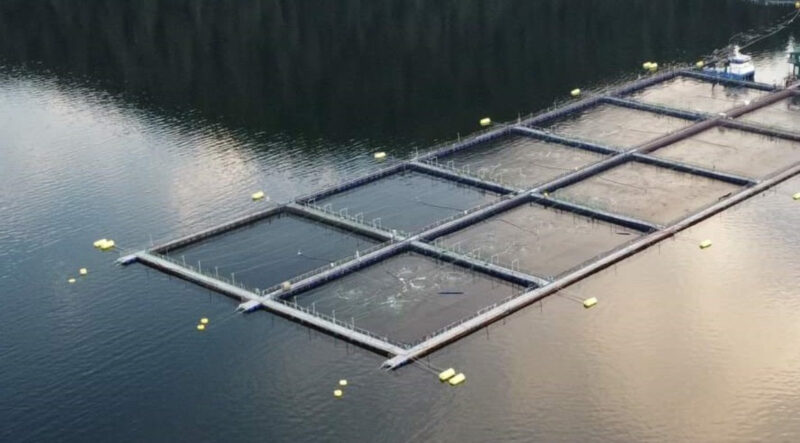Ottawa rejects science, betrays First Nations with aquaculture decision
Decision to shut down Discovery Islands salmon farms goes against First Nations Reconciliation, increases food costs and devastates local economies
By Fabian Dawson
SeaWestNews
The Federal Government has ordered the shutdown of salmon farms in BC’s Discovery Islands, walking back on its commitments to respect the rights of First Nations who want the aquaculture operations in their traditional territories.
The decision to close the farms in the core territories of the Laich-kwil-tach and Klahoose First Nations, commonly referred to as the Discovery Islands, was announced late yesterday in the wake of fearmongering campaigns by anti-fish farm activists to vilify BC’s salmon farmers.
It was made despite the government’s own scientists producing 10 extensive peer-reviewed reports showing the marine operations have virtually no impact on wild stocks migrating through the area.
Signalling their intentions to appease the activists, federal officials gave a heads up about the announcement yesterday to the anti-fish farming lobby, before reaching out to the directly impacted salmon farmers, local community officials and First Nations leaders.
“The Federal government continues to demonstrate a lack of care for rural coastal communities and continues to put the interests of activists above the people who grow Canada’s food. It is unacceptable that activist groups had advance notice, before licence holders and community leaders,” said Brian Kingzett, Executive Director of the BC Salmon Farmers Association (BCSFA).
“The decision to not issue salmon farms in the Discovery Islands area is devastating for all coastal communities who rely on the aquaculture sector,” said Kingzett.
“These communities will continue to experience negative socio-economic impacts of an outcome that was based on politics rather than science.”
The Coalition of First Nations for Finfish Stewardship said it is “extremely disappointed” with the government for not respecting the sovereign authority of First Nations to decide if, when, or how they want to operate finfish aquaculture in their traditional waters.
“Unfortunately, the decision was once again taken away from them by a government located 5,000 kms away from their territories,” said Coalition spokesman, Dallas Smith.
The original decision to shutter 19 open-net salmon farms in the Discovery Islands was made in 2020 by former Fisheries Minister Bernadette Jordan.
Unable to get any answers from Jordan, salmon farmers Mowi Canada West, Cermaq Canada, Grieg Seafood BC and 622335 BC Ltd, applied for a judicial review of the government’s decision.
Last April, the Federal Court ordered the government to set aside the decision due to procedural breaches by Jordan, and reaffirmed an earlier ruling that all the evidence provided showed “salmon aquaculture in B.C. poses no more than a minimal risk to wild salmon.”
Joyce Murray, who took over Jordan’s portfolio after the last election, then ordered up consultations with the stakeholders to meet the procedural requirements before making the same decision as her predecessor.
“There are multiple stressors on wild salmon, including: climate change; habitat degradation and destruction; regulated fishing as well as illegal, unreported, and unregulated fishing. Given the state of wild Pacific salmon, the Government of Canada is taking a highly precautionary approach to manage Atlantic salmon aquaculture in the Discovery Islands area,” Murray said in a statement yesterday.
Separately, Murray and her officials are also working on implementing an open-net pen transition plan for all of BC, expected to be finalized in the Spring of 2023.
Diane Morrison, chair of the BC Salmon Farmers Association and Managing Director of Mowi Canada West said the original December 2020 Discovery Islands decision saw the elimination of nearly a quarter of salmon farms in BC.
“This resulted in companies laying off hundreds of employees from well-paid careers – in a region of Canada that is struggling to attract and retain its youth…The Federal Government has turned their backs on coastal communities.”
The Discovery Islands decision, is expected to kill 1,535 jobs, mainly in coastal and indigenous communities and about 340 jobs in Surrey described as the “the hub of salmon farming in Metro Vancouver.”
Prior to the December 2020 announcement, BC’s salmon farmers announced they were planning to directly invest $1.4 billion in innovation, new technology and infrastructure, to boost Canada’s post pandemic recovery. The investments through 2050 would create almost 10,000 new jobs and add a cumulative $44 billion in new economic activity to propel Canada’s Blue Economy.
“This decision will significantly reduce the sector’s ability to attract required investments for clean technology and innovations to evolve the sector. This means we cannot support the Federal Government’s commitment to transforming the sector as we continue to experience uncertainty and reckless decision-making by Ottawa,” said Kingzett.
The Canadian Aquaculture Industry Alliance (CAIA) said it is deeply disappointed and disturbed at the Canadian government’s decision to ignore their own science and the requests of First Nations.
“This decision goes against First Nations Reconciliation, increases food costs for Canadians and undermines food security and has broad-reaching implications for employment and economic opportunity for people in rural, coastal and Indigenous communities, and our global trading markets,” saidCAIA.
“Government frameworks must support attracting business capital, job creation in rural, coastal, and Indigenous communities, and healthy domestic food production. This decision does the opposite.”
(Image shows a salmon farm in the Discovery Islands of BC)


Comments are closed.